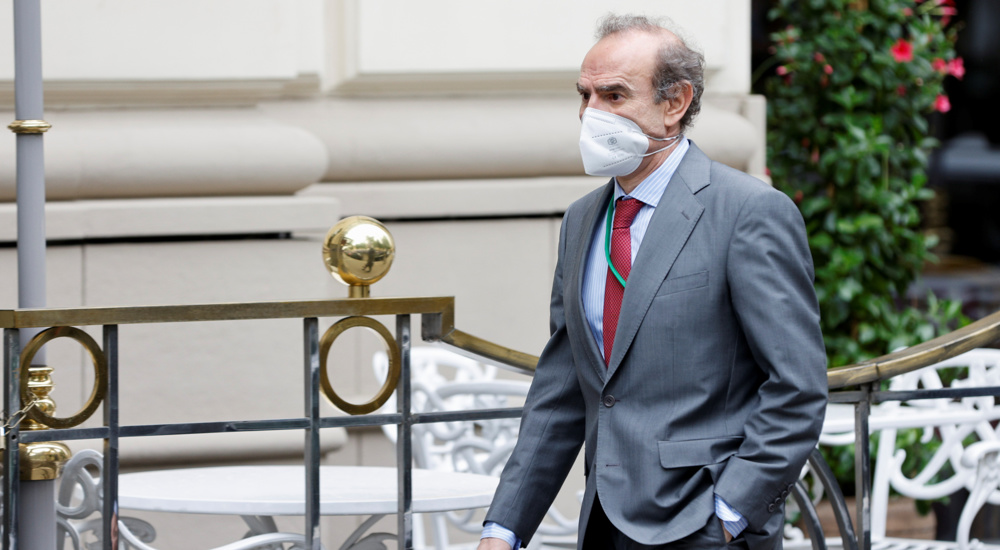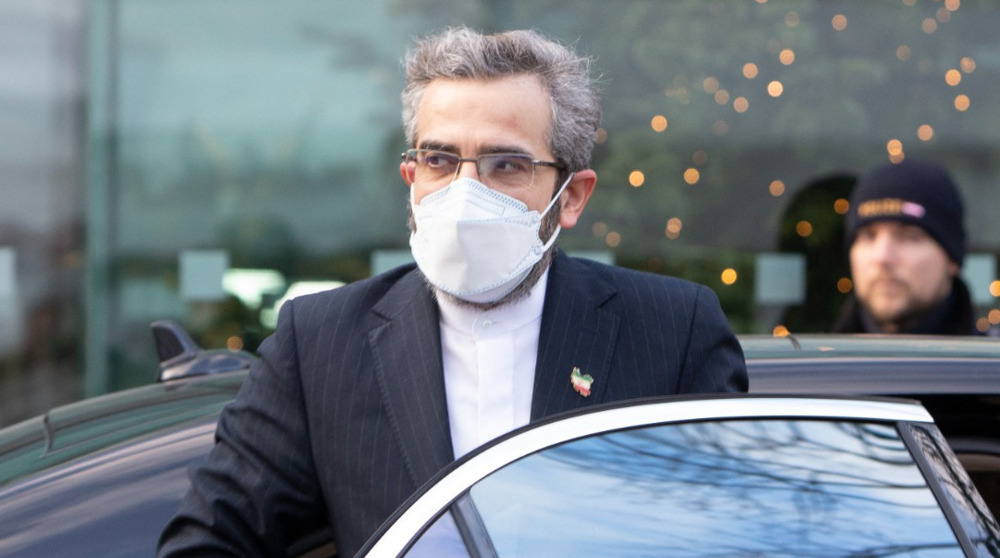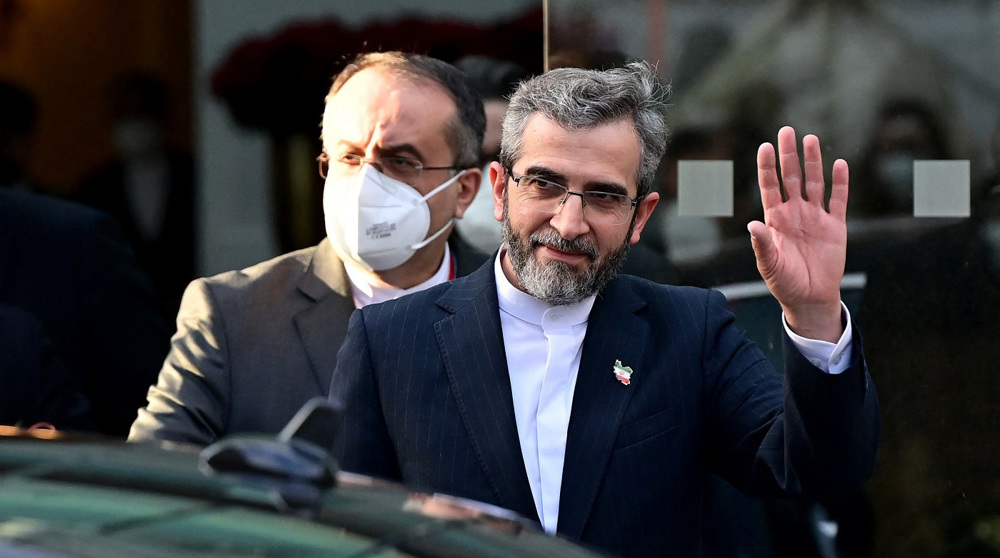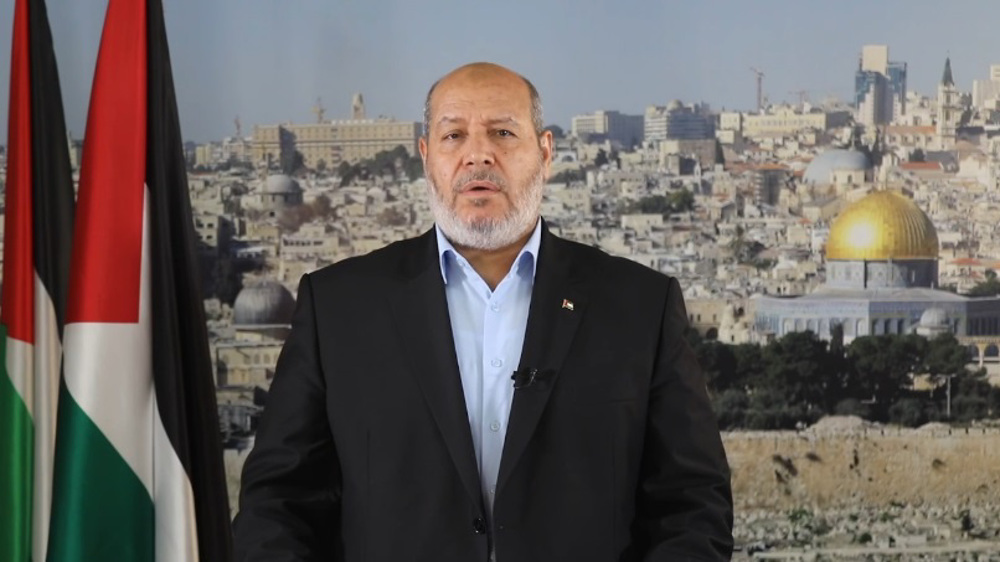EU’s Mora: 'Now we have common basis' on removal of Iran sanctions
European Union deputy foreign policy chief Enrique Mora says the parties to the 2015 Iran nuclear deal somehow have a “common basis” on the removal of unilateral sanctions against the Islamic Republic.
Mora's remarks came on Saturday after the seventh round of talks in the Austrian capital, Vienna, confirming Iran's announcement that the Europeans had accepted its draft proposals on how to proceed with the negotiations.
“Now we have a common basis though not entirely there on sanctions lifting chapter but that bit has a different internal logic so no big deal. Hope that clarifies why next is 8,” Mora tweeted.
Now we have a common basis though not entirely there on sanctions lifting chapter but that bit has a different internal logic so no big deal. Hope that clarifies why next is 8 and the …..
— Enrique Mora (@enriquemora_) December 18, 2021
Chief negotiator Ali Bagheri Kani announced on Friday that the three European members of the Joint Comprehensive Plan of Action (JCPOA) — known as the E3 — had accepted Iran's proposals as the basis for future talks.
Bagheri Kani said the pace of reaching an agreement depended on the will of the other side.
"If the other side accepts the rational views and positions of the Islamic Republic of Iran, the new round of talks can be the last one and we can achieve a deal in the shortest possible time."
The senior official said Iran and the P4+1 group of countries had reached “two new documents for talks both on the issue of sanctions and on the nuclear issue,” referring to the bans that the US imposed on Iran after withdrawing from the deal and the retaliatory nuclear steps that Tehran took away from the accord.
He emphasized that the fresh round of Vienna talks would be based on these new texts which incorporate Iran’s viewpoints and positions.
Iran’s chief negotiator explained that the talks were paused on Friday because the two sides agreed on the basis of the future negotiations, noting that they would resume a fresh round with serious discussions on the texts which have been agreed upon by all the negotiating teams.
EU claims about pause dismissed
The official also rejected claims by the E3 that the pause in the talks had been requested by Iran.
“Iran did not want to stop the negotiations at this stage, but we had agreed from the beginning that it would be necessary for us to take a rest after reaching a draft agreement,” he said.
“Iran has stressed from the beginning the need to continue negotiations to reach a draft agreement,” he added.
His remarks came after the European signatories to the JCPOA claimed in a joint statement that Iran had asked for a pause in Vienna talks.
Overjoyed at the news, Israeli journalist Barak Ravid wrote in a tweet, “BREAKING: E3 diplomats: We are disappointed by Iran’s decision to ask for a pause in the nuclear talks in Vienna. In just few weeks the non-proliferation advantages achieved by the 2015 nuclear deal will be lost. We are rapidly approaching the end of the road for these talks.”
Ravid had also swiped at the E3 for accepting Iranian demands for proceeding with the Vienna talks in another round.
"So you basically accepted Iranian demands to change the TOR of the talks," he wrote under a thread of tweets by Mora.
Iran and the five remaining parties to the JCPOA resumed talks in Vienna on November 29 after a five-month pause, marking the first round of negotiations under President Ebrahim Raeisi’s administration and the seventh overall.
The Islamic Republic maintains that its presence at the talks is intended to have the US sanctions removed, which would, in turn, secure a US return to the nuclear deal.
The US, which is not allowed to directly participate in the talks as a result of its 2018 withdrawal from the JCPOA, claims that it is willing to undo the withdrawal and repeal its “maximum pressure” policy against Iran.
Iran argues that the onus is on Washington to return to the nuclear deal after removing its illegal sanctions and offering guarantees that it would not exit the pact again.
Hamas thanks Iran, Resistance Front following achievement of ceasefire in Gaza
'Capitulation': Israeli officials and media concede Gaza defeat as truce unfolds
'Gaza has won': Social media users react to ceasefire with mix of relief, joy
Iran seeks South Korea’s assistance for AI, fiber-optic projects
VIDEO | Iran's 'Eqtedar' (Power) maneuver
Israel hits HTS military target in Syria for 1st time since fall of Assad
VIDEO | Press TV's news headlines
Israel has slaughtered 13,000 students in Gaza, West Bank












 This makes it easy to access the Press TV website
This makes it easy to access the Press TV website